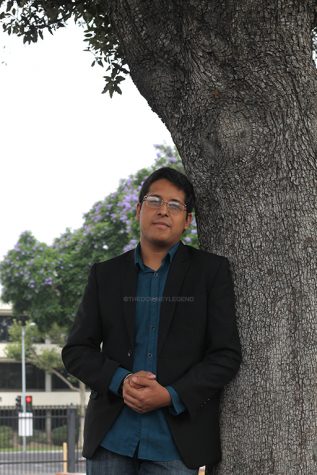Emmy Wins Representative of Larger Need for Diversity
October 4, 2017
It is rare to find something to relate to or, at the very least, sympathize with in visual media. Movie theatres and TV channels are overstuffed with larger-than-life stories that present to the masses fantasies which act as an escape from one’s life. Escapism is a good thing, but fictional stories were always meant to act as an extension of our lives. But how are these stories meant to connect with us when there is a lack of representation on screen? Films and television shows do not need to be grounded in reality to affect a person emotionally – they just need to be as diverse as our society is.
A major step towards representation was taken on Sept. 16 when Lena Waithe became the first African-American woman to win an Emmy for outstanding writing in a comedy series. Her episode of “Master of None” entitled “Thanksgiving” chronicles her character, Denise, as she attempts to articulate her sexuality amidst the preconceptions of what it means to be a person of color, a women, and queer in today’s society. Despite Waithe’s personal tie to the episode, the story is pure and genuine, done with subtlety and heart to demonstrate the struggles faced by minorities.
Waithe’s story, although specific to her experiences, demonstrates the importance of diversity both on and behind the screen. The entertainment industry has long held minorities in the background to create a façade of true representation on-screen but artists such as Waithe, Donald Glover, Aziz Ansari, Reed Morano, Riz Ahmed, and Sterling K. Brown are breaking barriers and fighting back against white notions of what protagonists should be.
Furthermore, shows such as “Insecure”, and “Jane the Virgin” continue to fight these notions by infusing different perspectives and ideas into their narratives. “Jane the Virgin” embraces Latin culture by mimicking the melodramatic nature of telenovelas and depicting the main protagonist, Jane (played by Gina Rodriguez), as an enthusiastic, determined Latina rather than the stereotypical maid or criminal. “Insecure” portrays an authentic comedic image of black female friendship as two friends, Issa and Molly, navigate through everyday life; even the episode titles are unique in that they are titled bluntly as, “Hella Shook” or “Racist as F**k” to represent how they speak.
Each one of these shows are vital to the television bloodstream and entertainment medium as they break the common stereotypes and give graceful depictions of minority voices that are seldom heard. They embrace different cultures and set a precedent for how they should be represented. They allow younger generations to view themselves on-screen and relate to characters that present a positive image. And above all else, they demonstrate the power of diverse voices.
Stories serve as extensions to our lives. Stories can be grandiose or they can be tied to the realities of life, but no matter how far they may stray from reality, each story gives us the opportunity to be larger-than-life. They allow us to see characters that surpass adversity and give us strength to do the same; characters that we can relate to and sympathize with. But for stories to have that impact, voices of all demographics have to be represented and accepted. Waithe’s and Glover’s win at the 69th Emmy Awards are indicative that not only are these voices necessary, but that they are accepted.



